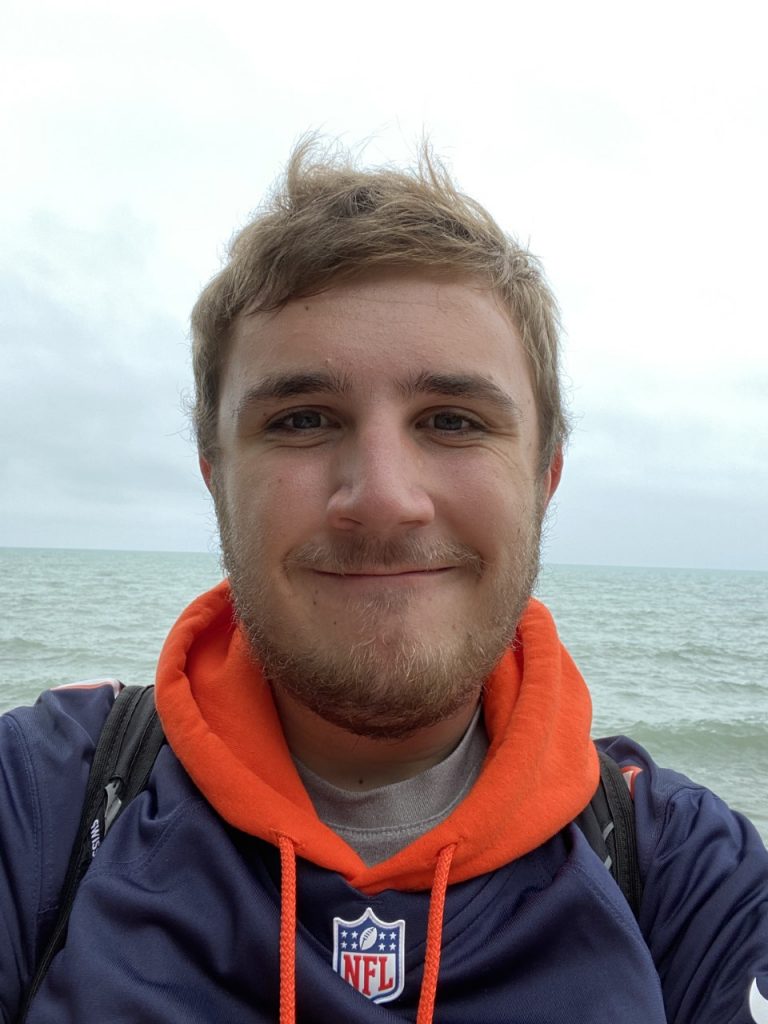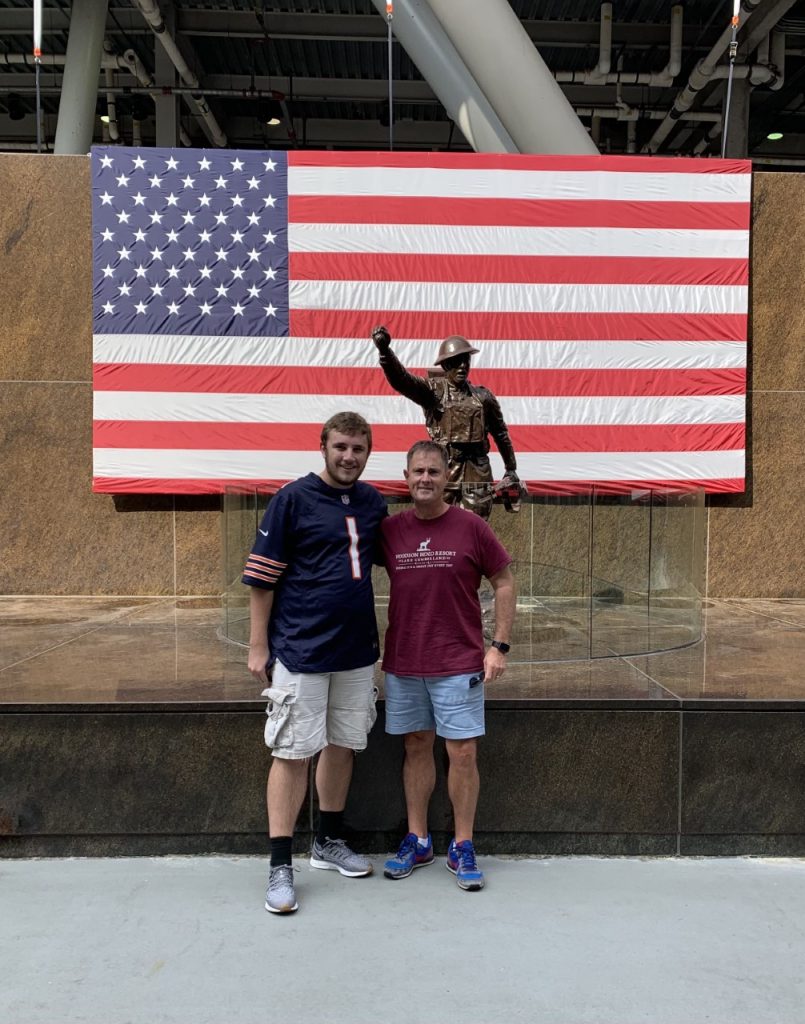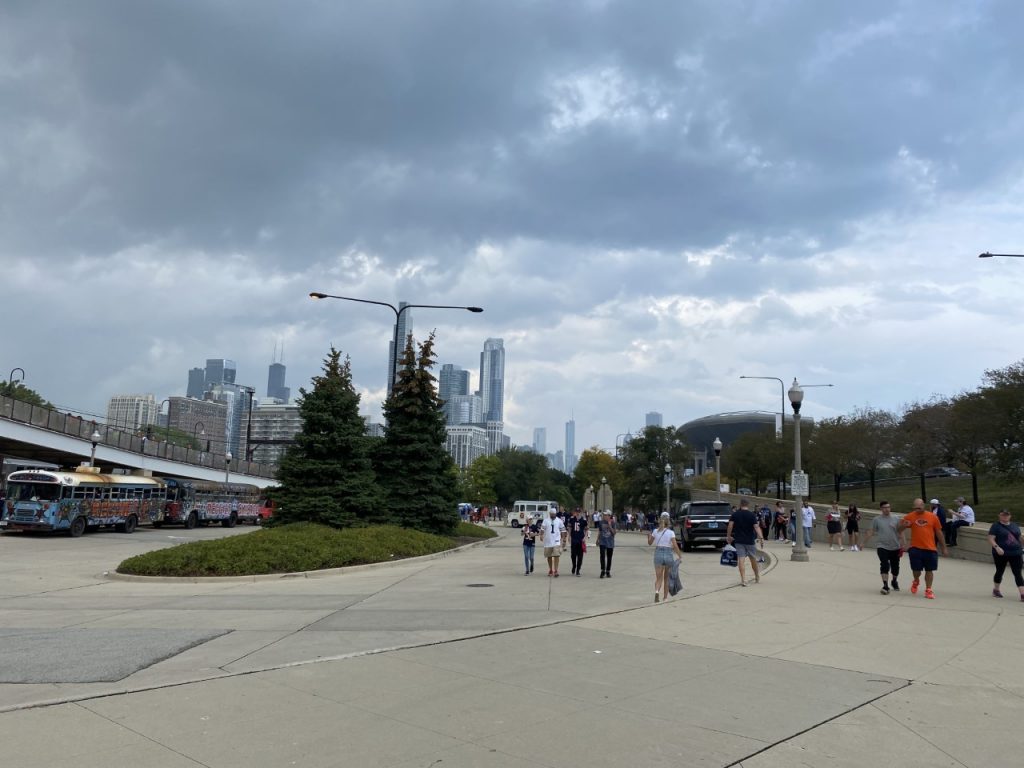marHaba! My name is Callahan, and I am a sophomore studying political science. While Arabic is not the first, second, or even third world language I have studied, it certainly has been the most unique one I have studied so far! I believe Arabic will open me to a world that is so often misunderstood and unfamiliar to the average American, which is why I accepted the challenge of learning Arabic. As with any language I have studied, I try to use as much of the language as I can in my day to day life and not let embarrassment hold me back from speaking. While often my strategy just involves me talking with myself or family and friends who don’t understand a thing I say, sometimes the perfect opportunity to speak with a native speaker arises.
On October 3rd, my dad and I went down to Soldier Field to watch the Bears play. After a triumphant victory for Chicago, my dad and I left to get an Uber back to my Uncle’s apartment. After an hour long process that involved my dad and I walking a great distance away to be in a place where we can get picked up, our driver Mohammed showed up and greeted us. Mohammed was a great conversationalist with my dad (though I was not saying much) and eventually he mentioned he was a university student from Tunisia studying computer science. Immediately upon hearing that he was from Tunisia, I jumped on my opportunity for a conversation and finally introduced myself with “ismii Callahan, tasharrafnaa al-Hamdulillah.” Mohammed was a bit surprised but pleased to hear me speak Arabic. This led to a conversation about dialects, as I told him my ‘ustadhaa is from al ‘urdunn. I was told how different the dialects are and sound across the Arab speaking world and how the Levantine dialect is apparently the closest to Standard Arabic. However, I feel having this talk about Arabic also allowed for something greater to happen…
After our conversation about Arabic, Mohammed also seemed to open himself more to me, telling me how he was born in Italy to Tunisian parents but moved back when he was a child. He revealed he knew four languages; Italian, Arabic, English, and French. What is very interesting is how in Tunisia, unless one is studying Arabic itself or subjects related to Islam, French is the language of education and the university. I knew that Tunisia was a French colony, but it was so interesting to hear about how much colonialism effects life in Tunisia to this day. All of this proved to me two great things about Arabic: It opens one’s heart, and it enriches the mind. Without Arabic, I would have not made a connection and be left in ignorance, but also it took me to make that first step and be confident enough to use even what little Arabic I know, since it got me a long way.



